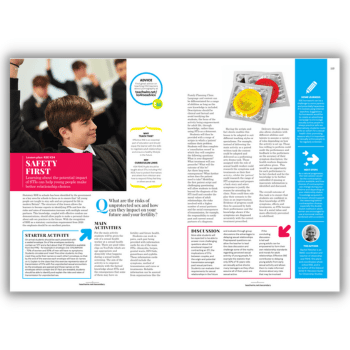Resilience Doesn’t Lead to Success… Success Fuels Resilience

If you think that developing resilience in your students will lead to success, then thing again – because the truth is, it’s entirely the other way around, says David Didau…

- by David Didau

It’s rare these days to find a secondary school that is not preoccupied with the desire to make its students more resilient.
We wring our hands at the fragility of young people who baulk at the slightest setback and give up the moment the going gets tough.
How on earth, we loudly wonder, can we make them as robust and resilient as we are?
This a fascinatingly fallacious narrative. Young people are no more or less resilient than their teachers. To become a successful adult in any sphere one has to be a strategic quitter.
We very quickly learn that we’re better at thisthan that, and rightly conclude that it would be rational and profitable to focus our attention where our strengths are, and abandon what we find difficult and unrewarding.
It’s rare indeed to find adults who voluntarily spend time engaging in activities with which they struggle.
Bounce back
While this is an obviously sensible way to survive and thrive, it does make us particularly bad role models when it comes to exhorting children to buck up and buckle down.
In order for young people to be successful at school we need them to be as little like us as possible. That said, we did have to put off quitting all the subjects we found least enjoyable at least until the end of Year 11.
How then ought we to encourage students to contend with the rigours of GCSE maths, English, science and all the others?
The first thing to accept is that resilience is not quite what we think it is.
Although in common usage it means to quickly recover from setbacks and difficulties, its technical definition is to be unaffected by forces and pressures – to spring back into shape unaltered.
This is not what we want at all.
Of course we want students to successfully weather storms and navigate life’s vicissitudes, but do we really want them to be unaltered by these experiences?
It’s more likely that we would hope that they will grow and mature as a result of contending with hardship.
Such growth is anathema to resilience.
When thought of in this way it’s instructive to consider the psychological traits most associated with resilience.
The three best predictors of a resilient character are high self-esteem (maintaining a belief that you’re great despite evidence to the contrary), lower levels of perfectionism (being a bodger) and the attribution of success to innate qualities while simultaneously blaming external factors for failure.
None of these qualities are particularly attractive, and are probably not what we’re hoping to instil in our students.
Hard work pays
It’s a lot more profitable to accept that the ability to recover from setbacks is more often a context dependent characteristic. That is to say, we’re only likely to be resilient where we’ve experienced some measure of success.
If you’ve only ever experienced failure then doggedly believing that having another go would be a good strategy begins to look like madness. But, if you’ve experienced success in the past you’re much better equipped to cope with a setback.
This suggests that getting students to toughen up in one domain in the belief that this will transfer to another, unrelated domain is naïve; being forced to do something you hate just makes you hate it more.
Instead, if you want a student to develop resilience in a subject like maths, your best bet is to make them successful mathematicians.
Have you ever noticed that students who are good at a subject are the most likely to struggle with intractable problems? It’s because they know hard work has paid off in the past.
Making students successful might seem easier said than done but this is the primary concern of teachers. Our first duty is to embed a schema of success; to give students so much support that they are successful despite themselves.
Once they’ve come to accept that yes, success is possible, then and only then will they be prepared to invest effort.
David Didau is an independent education consultant and writer. He blogs at learningspy.co.uk and you can follow him on Twitter at @DavidDidau.











